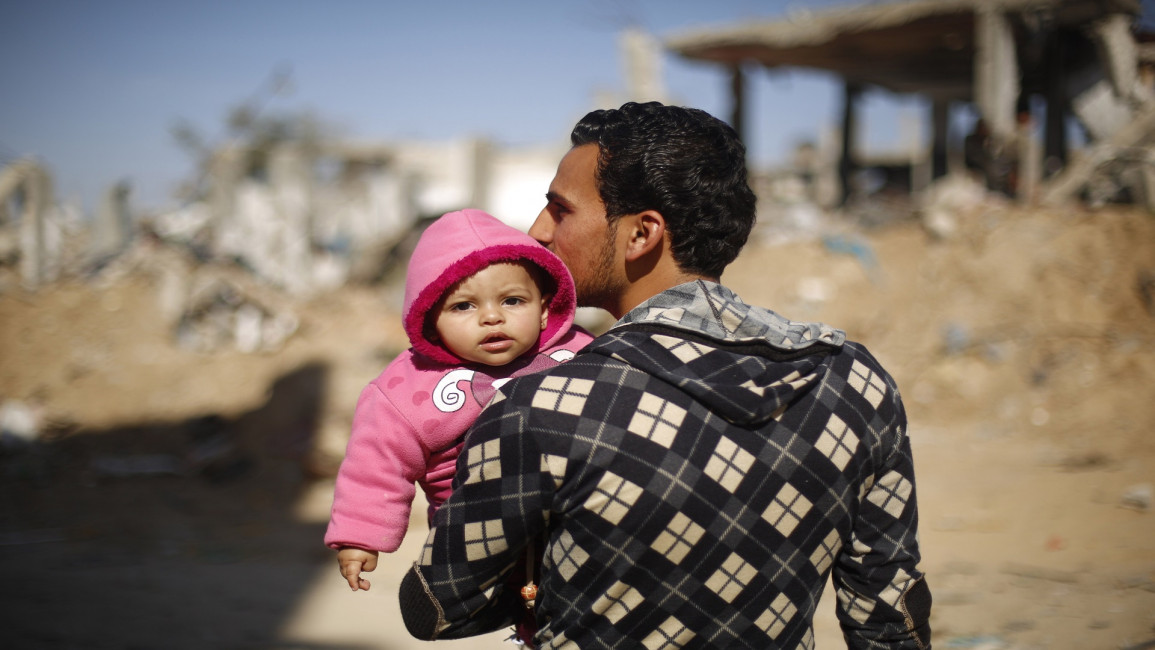Palestine becomes full member of ICC
The Palestinian Authority has formally joined the International Criminal Court, the latest step in a strategy by its leadership to seek legitimacy through international recognition.
"As Palestine formally becomes a state party to the Rome Statute today, the world is also a step closer to ending a long era of impunity and injustice. Indeed, today brings us closer to our shared goals of justice and peace," said Palestine's minister of foreign affairs, Riad al-Malki.
Palestine is now able to ask the court to investigate individuals for alleged war crimes on Palestinian territory dating to June 13, 2014. That is immediately before Israel's summer war in Gaza that left over 2,000 Palestinians dead, the majority civilians.
The Palestinian team is waiting for the results of a preliminary investigation launched in January by chief prosecutor Fatou Bensouda. That investigation could lead to a formal probe into alleged Israeli war crimes during the assault.
In theory, anyone can present evidence to the court, but only the court's prosecutor and in some cases its judges have the authority to decide what is investigated further.
Shawan Jabarin, general director of human rights group al-Haq, told al-Araby al-Jadeed that he expected a decision within months.
"There is no exact time frame, but the prosecutor is professional and independent, so I'm optimistic," he said. "We have full trust in her. There are attempts to press her, particularly by Canada and America, but she insists on independence.
"We're working with lots of civil society and human rights people to provide documentation and evidence to the court.
"We're looking at every kind of crime, and not just in Gaza: destruction of civilian objects, targeting of civilians and medical teams, the use of human shields and so on. Gaza is not one title, it is many titles."
| We're looking at every kind of crime, and not just in Gaza. Shawan Jabarin, general director of al-Haq |
Peace talks strategy
Joining the ICC is the latest move in a Palestinian strategy of gaining recognition at international bodies, thus gaining greater leverage in any future return to peace talks.
In 2012 the UN General Assembly voted overwhelmingly to recognise Palestine as a non-member observer state, a move strongly opposed by the US and Israel.
"The Israeli position is that these moves get in the way of making a peace deal, and encourages the Palestinians not to negotiate," said Chris Doyle, a director of the Council for Arab-British Understanding.
"The Palestinian argument is that negotiations have yielded nothing, and that they have no option than to go down the legal path."
Nevetheless, the Palestinians face obstacles each step of the way towards full recognition of their state by international bodies.
After they lodged their application to join the ICC in January, the Israeli foreign minister Avigdor Leiberman told Israel Radio that Israel was lobbying member states to cut funding to the court.
Israel then froze $400m in tax revenues that it collects on behalf of the Palestinian Authority, affecting the pay of thousands of Palestinian public servants.
The government released the funds on 27 March, shortly after Israeli elections.
Canada and the US argue that Palestine is not eligible to join the ICC as it is not fully recognised as a state at the UN, a position condemned by human rights groups.
"Governments seeking to penalise Palestine for joining the ICC should immediately end their pressure, and countries that support universal acceptance of the court's treaty should speak out to welcome its membership," said Balkees Jarrah, an international justice counsel at Human Rights Watch.



